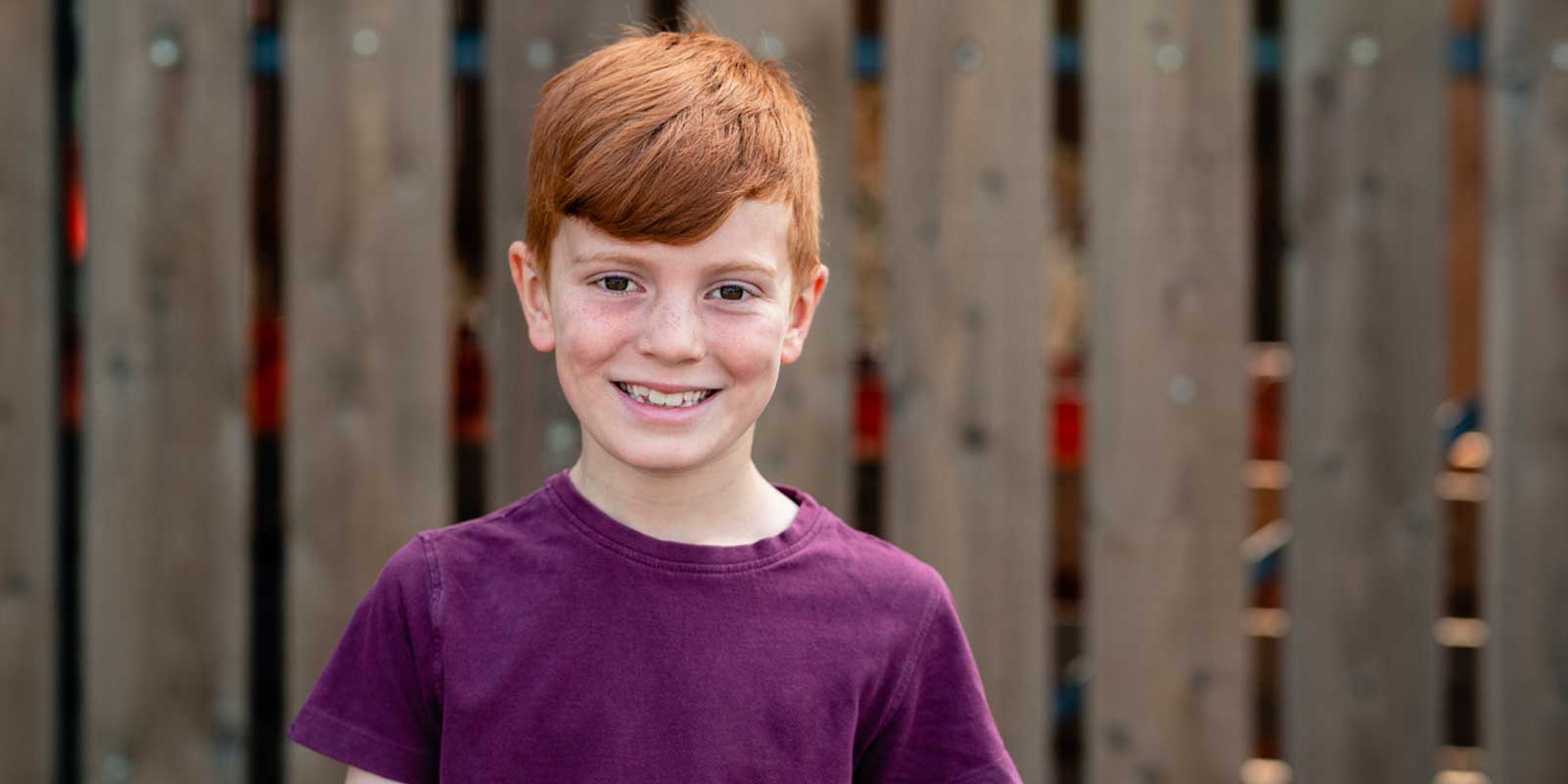In an ideal world, our children would always come to us if they have a problem. But in reality they may feel that you’re too busy to listen, or that you’ll be cross with them, or that they should keep whatever’s bothering them a secret. Here are some more tips for encouraging them to open up to you about anything that may be bothering them. You could also take a look at our tips for building an open, trusting relationship with your child.
Tips for encouraging your child to confide in you
Tip #1: Have some ‘alone time’
If something is worrying your child, they may be waiting for a good time to talk to you. So try to set aside a bit of time where you can give them your undivided attention and you can’t be overheard. For example, this could be while you’re walking to school or at mealtimes, or a chat before bedtime.
We know getting time alone with one child can be hard if you they have brothers or sisters – just before they go to bed could be a good time.
You can find more tips for starting a conversation with your child on the Young Minds website.
Tip #2: ‘Good’ secrets and ‘bad’ secrets

Make sure they understand the difference between good secrets (like Christmas presents and surprise parties) and bad secrets that make them feel upset or unhappy. Let them know that if they’ve been asked to keep anything secret that makes them feel frightened or worried, they should always come to you or another trusted adult.
Tip #3: If you can’t say anything nice…
…don’t say anything at all! That is, try not to criticise other people around your child – your partner, their friends or even people on TV. Saying judgmental things like ‘what a stupid thing to do – you’d never do anything that stupid would you?’ might make them think twice about coming to you if they have a problem or feel they’ve made a mistake.
Tip #4: Be on the look out for hints

If your child has something they feel awkward about raising, they may try and raise the issue indirectly, for example, by drawing a picture, commenting on a TV programme, ‘asking for a friend’, or asking general questions, like ‘is it wrong to tell a secret?’ If you suspect they may be trying to do this, be gentle with them and draw them out slowly with questions. This will show you’re interested and aren’t about to judge.
Tip #5: Show you care in other ways
Talking isn’t the only way to make your child feel safe. Doing kind things for them like offering them a hug, putting a hot water bottle in their bed or cooking their favourite meal can also help them feel loved and secure, which means they’ll be more likely to come to you with any problems.
Tip #6: Put yourself in their shoes
Try reading this advice from Childline, which suggests ways children can approach talking to adults about difficult things. Is your child trying any of these with you?
Tips to help your child express their feelings
Depending on their age, your child may find it hard to explain how they feel. Here are some ideas for helping them confide in you in other ways. You can find more ideas on the Play Scotland website.
Tip #1: Use an 'emotions wheel'
The ‘emotion wheel’ on the Mentally Healthy Schools website is a fun way of helping children explore how they’re feelings. You could try using it every day so they get used to thinking about how they’re feeling and expressing it to you.
Tip #2: Look at the emojis on your phone
The emotion wheel uses emojis to help define emotions, so you could also try looking at the emojis on your phone and discussing with your child what each one is feeling. This is also a great thing to keep kids occupied when you’re on the bus or in a queue at the supermarket!
Tip #3: Link colours to emotions
Colours are another helpful way to express emotions. For example, if your child is feeling ‘red’ they may be angry or upset. If they’re ‘blue’ they may be feeling sad and if they’re sunny yellow they may feel happy or green if they’re calm. You could talk to your child about how different colours reflect different feelings, then draw a heart and ask them to fill it in with the colour they feel at the moment.
Tip #4: Talk about physical symptoms
If your child is worried about something, they may feel this as a physical symptom like a tummy ache. You could talk to them about how the way we feel in our minds is linked to the way we feel in our bodies.
Tip #5: Be on the look out for signs
You know your child best, so keep an eye out for any clues that they may be upset, for example, if they suddenly become more clingy or go back to younger behaviours like wetting the bed. Our page on supporting your child’s mental health has lots of tips for helping them through any anxious periods.
What should I do if a child does come to me with a problem?
Tip #1: Listen
If your child comes to you with a problem, it can be tempting to jump in and try and solve it for them before they’re finished speaking. But try not to do this – we know it’s hard! Let them go at their own pace and try not to interrupt or second guess what they’re going to say.
Instead, ask questions and reflect back what they’ve said, to make sure you understand the situation fully. Show you’re listening through your body language, by putting down what you’re doing, uncrossing your arms and turning to face them, looking at them (unless they don’t seem to want eye contact) and nodding.
Tip #2: Praise them for speaking up
Tell them how pleased you are that they’ve come to you, and that you’re proud of them.
Tip #3: Be compassionate
Whatever they tell you, be kind and acknowledge that this is upsetting for them – even if to you it seems trivial. And try to resist the urge to laugh if their big confession turns out to be something funny!
Tip #4: Put away your magic wand

If your child comes to you with a problem, your first instinct will be to wave a magic wand and make the pain go away. But even if you can do this, try not to. Instead, talk through the problem with them and help them solve it themselves. This will help them become more resilient and confident at solving their own problems in the future.
Tip #5: Stay calm
If your child tells you something that’s upsetting (for example, if they’re being bullied at school, or they’ve made a bad choice), try to keep calm. Offering them a big hug and counting to 10 will give you both time to take some deep breaths and think before you discuss the problem.
Tip #6: Don’t tell
If you promise not to tell anyone else about the problem, don’t. Even if it’s something that to you seems funny, if it’s a big deal to them they won’t appreciate hearing you joking about it to someone else. In some cases you may have to talk to someone else about it, like your partner, your child’s teacher, another parent or even the police. But try to explain to your child why in this situation you can’t keep this to yourself.
Where can I get help?
Depending on what your child tells you, you may need to get help or support from another person, such as their teacher, your GP, or a support organisation. You can find links to lots of organisations that can help with a wide range of issues in our Family Support Directory.
 Activities & Play
Activities & Play Behaviour
Behaviour Childcare
Childcare Development & Growing Up
Development & Growing Up Family, Friends & Relationships
Family, Friends & Relationships Feeding Your Baby
Feeding Your Baby Food & Eating
Food & Eating Health & Safety
Health & Safety Mental Health & Wellbeing
Mental Health & Wellbeing Money & Work
Money & Work Online Behaviour & Safety
Online Behaviour & Safety Pregnancy & First Days
Pregnancy & First Days School & Education
School & Education Sleep
Sleep











 Mental Health & Wellbeing
Mental Health & Wellbeing
 School & Education
School & Education